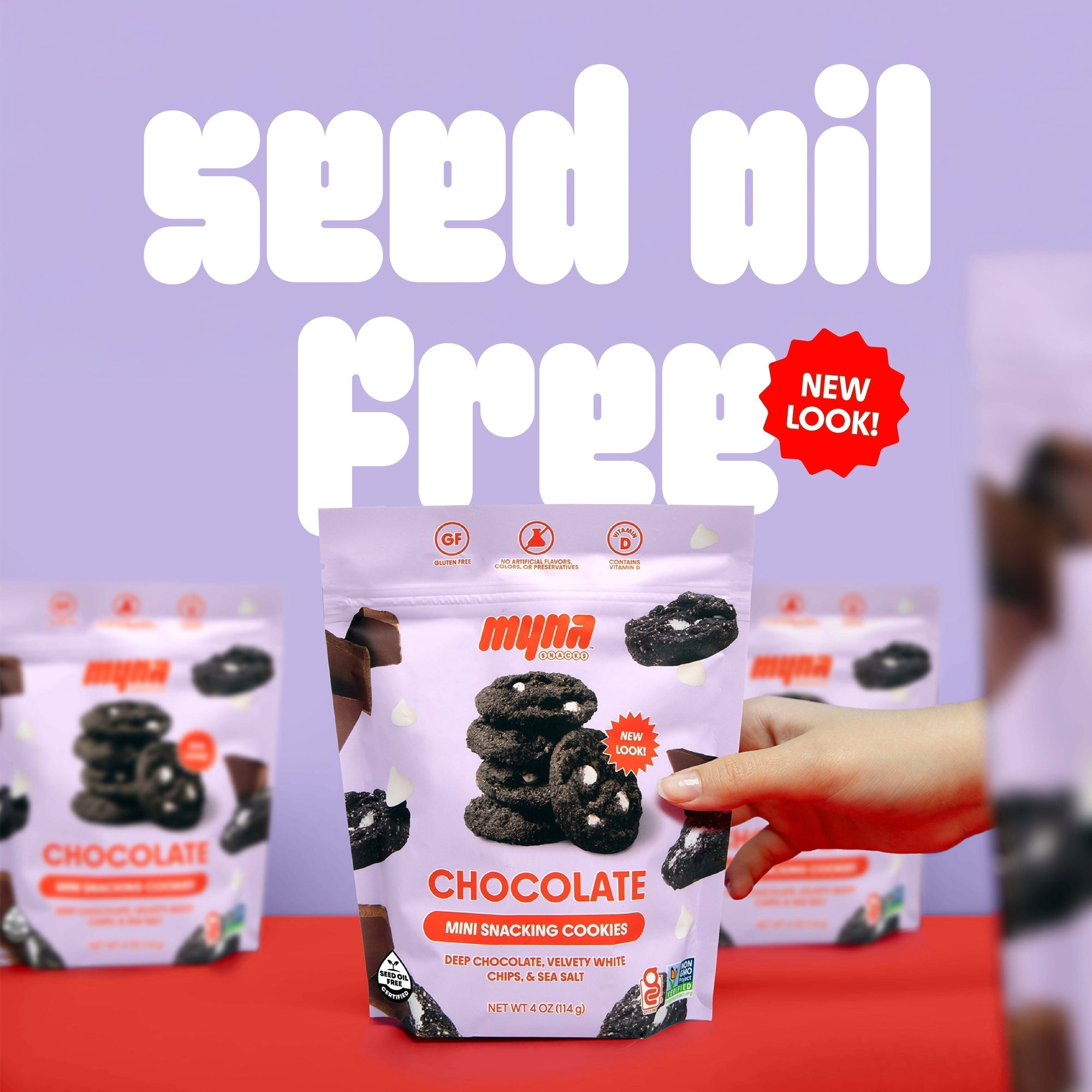Exciting News! Your favorite cookies are officially Seed Oil Free Certified and we're celebrating with a little makeover. Clean ingredients have always been our commitment to our community. As our team continues to make strides in the health and wellness space, we need our packing to reflect these efforts. New bag, same great taste, and now a new seal we wear proudly.
Have questions about what this Seed Oil Free Certification means? Our team is here to address any and all questions. We are thrilled to be on this journey with you and look forward to creating more snacks that make you smile inside and out.
- What are seed oils? Seed oils are liquid fats made from the seeds of plants. The most common seed oils in the US are soybean, corn, and canola oil. In contrast, “vegetable oil” is a broader term that includes any edible oil made from plants, such as olive oil (which isn’t a seed oil). Any vegetable oils that aren’t seed oils, like olive and avocado oils, are actually made from the fruits of plants. Therefore, while all seed oils can be called vegetable oils, not all vegetable oils are seed oils.
- Why do people want to avoid them? Most seed oils are very high in omega-6 fats and, as a result, people today have an imbalanced intake of omega-6 to omega-3 fats, which is associated with health problems. They’re also highly processed—think “empty calories”—and displace other, more nutritious foods. And because common seed oils are high in unstable polyunsaturated fats, they’re not suitable for high-heat cooking or reheating. Seed oils high in polyunsaturated degrade and form harmful molecules that are transferred into foods when they’re used in sauteing, frying, or other types of heating. Proponents of seed oils often downplay the unprecedented increase in their consumption and may overlook or dismiss credible research highlighting potential health risks. If you’re uncomfortable with the potential risks around seed oils, there’s no downside to reducing or eliminating and replacing them with oils and fats that are tastier, lower in omega-6 fats, and more heat-stable.
- What does Seed Oil Free Certified mean? Seed Oil Free Certified™ means that products are entirely free of seed oils, verified through lab testing, audits, and ongoing surveillance. The certification process, managed by the Seed Oil Free Alliance, ensures that only companies meeting strict standards can license the Seed Oil Free Certified seal.
- Are all your products seed oil free? All of our cookies are Seed Oil Free Certified. Our pizza crackers are not (yet).
- Your Midnight Mini Cookies have palm oil in them. Isn't that just as bad? Despite what you may have heard, palm oil is not a seed oil—it's made from the palm fruit, making it a "fruit oil." The palm oil used by Myna Snacks issustainably sourced and certified by RSPO, an internationally recognized organization backed by the World Wildlife Fund. This means that the palm oil is harvested under stringent environmental and social criteria. Of all the oils our Myna Snacks team tested, we found palm oil helped give the Midnight Cookies the right texture and crispiness. Palm oil also does not contain trans fat, which means our Midnight Mini Cookies contain 0% trans fat.
To learn more, visit the Seed Oil Free Alliance.
Want to chat further? Email us at info@mynasnacks.com.
